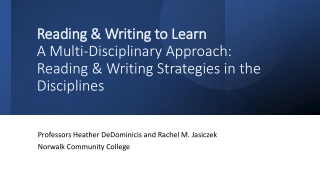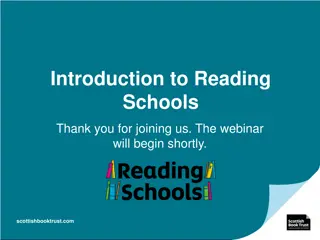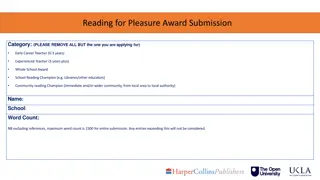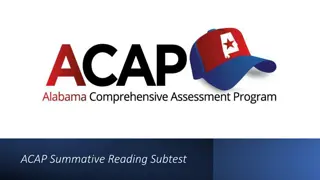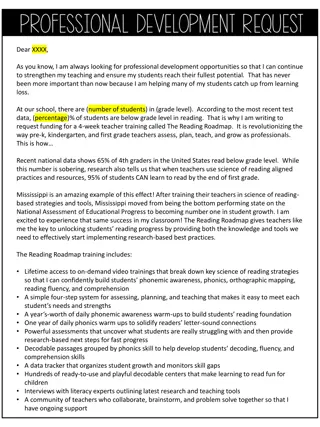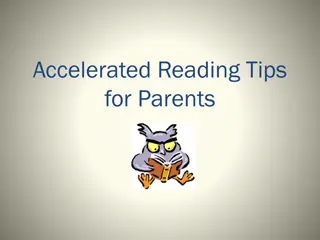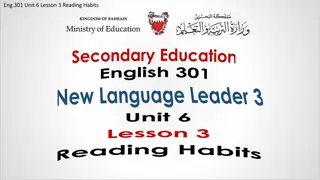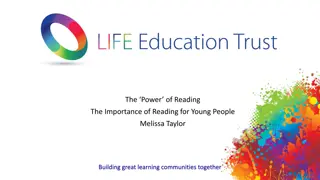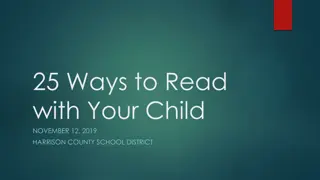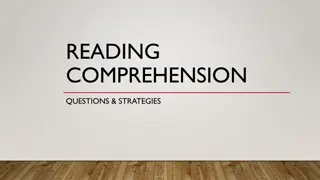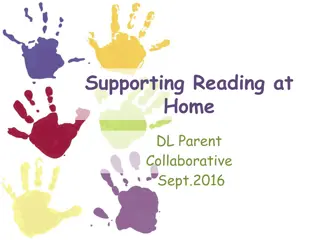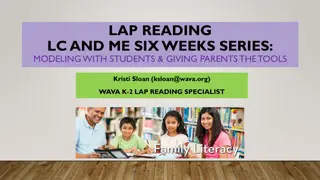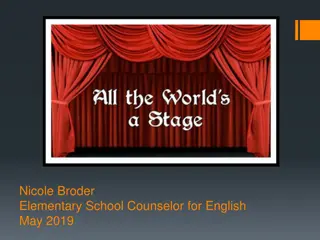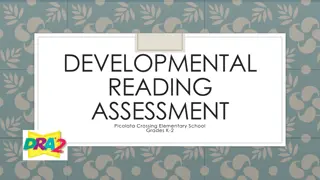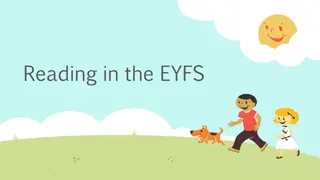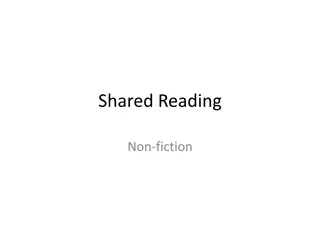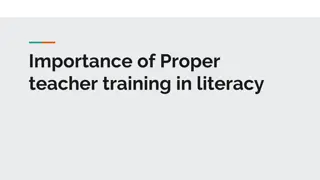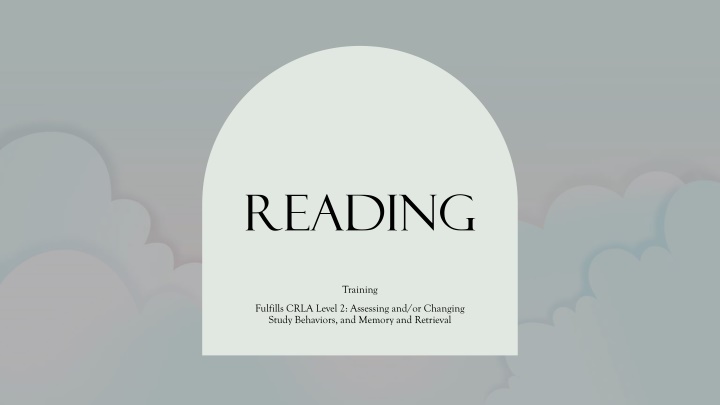
Enhancing Literacy Skills: Reading, Training, and College Perspectives
Explore the importance of literacy skills in the U.S., from reading training fulfilling CRLA Level 2 to challenges faced by college students. Discover literacy goals, reading techniques, and how to identify important elements in texts.
Download Presentation

Please find below an Image/Link to download the presentation.
The content on the website is provided AS IS for your information and personal use only. It may not be sold, licensed, or shared on other websites without obtaining consent from the author. If you encounter any issues during the download, it is possible that the publisher has removed the file from their server.
You are allowed to download the files provided on this website for personal or commercial use, subject to the condition that they are used lawfully. All files are the property of their respective owners.
The content on the website is provided AS IS for your information and personal use only. It may not be sold, licensed, or shared on other websites without obtaining consent from the author.
E N D
Presentation Transcript
Reading Training Fulfills CRLA Level 2: Assessing and/or Changing Study Behaviors, and Memory and Retrieval
Literacy in the U.S. 56% of adults have a literacy at a 6thgrade reading level or below 6thgraders learn: Plot structures Character development Figurative language POV Unreliable and omniscient narrators Scientific and Fictional Words The Golden Compass by Phillip Pullman is considered a 6thgrade reading level Redwall (Brian Jacques), The Hobbit (Professor JRR Tolkien), and The Westing Game (Ellen Raskin) are considered 7thgrade
College Literacy College students are attending college with fewer literacy skills than in the past Common theories claim that the introduction of smartphones have affected student s literacy as well as the COVID-19 Pandemic These rates have also been affected by changes in ready pedagogy: teaching to the test and the decline of phonics education. College students should be considered advanced readers, but many fall under the intermediate skill level
Literacy Goals Scan texts to identify key elements and organizational structures Synthesize and discuss information within and across texts Use a range of strategies automatically to get meaning from text, e.g. self-correct, read on, reread, slow down Make judgements about the parts of a text that are important for meaning Use a range and variety of text features to support meaning Evaluate and discuss the impact of the use of graphical devices Consider genre and text type to anticipate and organize understandings and big ideas from texts Use experiences, knowledge of recurring themes, text structures, and language to make deeper meaning of text Justify opinions by referring to text evidence Discuss the author s point of view and compare with their own Recognize and discuss critically the author s point of view Read fluently, adjusting for text type Recognize and analyze bias, propaganda, and stereotyping in texts Use their increasing knowledge of letter clusters, affixes, and root compound words and contextual information to solve unknown words https://myokapi.com/wp/wp-content/uploads/2019/12/Reading- Development-Chart-Color.pdf
How do you read? Do you read text differently? How do you identify important elements like: Structure What modality do you prefer? Argument What environment do you prefer? Scholarly Contribution How do you know when to skim? Analysis How do you know when to read deeply? Implications When do you read slowly? Do you read silently? Aloud? When do you read quickly? Sitting? Standing? Pacing? What do you do when you come across a concept or word that you do not know?
Activity In three groups, spend 20 minutes reading through your assigned academic article Your goal is to identify the STRUCTURE and the ARGUMENT in whatever way you can Make note of HOW you figured it out the Structure and Argument Discuss the Strategies you would use with a student in a consultation Report your group strategies with everyone
So...what can we do?
Reading Strategies for Students Ask yourself pre-reading questions Identify and define any unfamiliar terms Read, Reread, or Slow down! Put down the highlighter. Make marginal notes or comments instead Turn section headings into questions o The Gas Laws of Boyle, Charles, and Avogadro might become What are the gas laws of Boyle, Charles, and Avogadro? Read each paragraph carefully and then determine "what it says" and "what it does" Teach what you have learned to someone else!
Reading Strategies for consultations Model Reading Model Annotation Connections to Class Meta-reading (why are they reading this? What is the goal for reading this text?) Reverse Outlining Slow Reading
Reading Habits Helping a student build useful reading habits is part of our goal! When does the student read? How does the student take notes? Does the student read as they write? Does the student read and then start writing?

